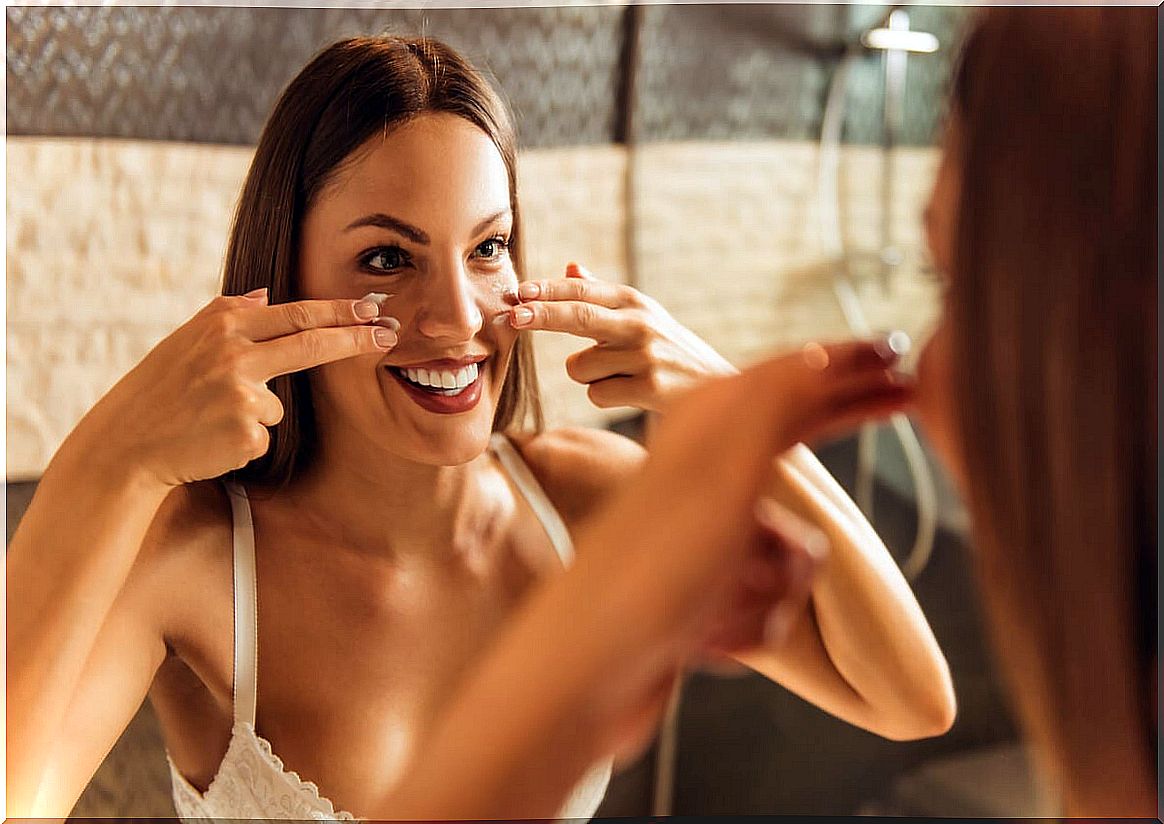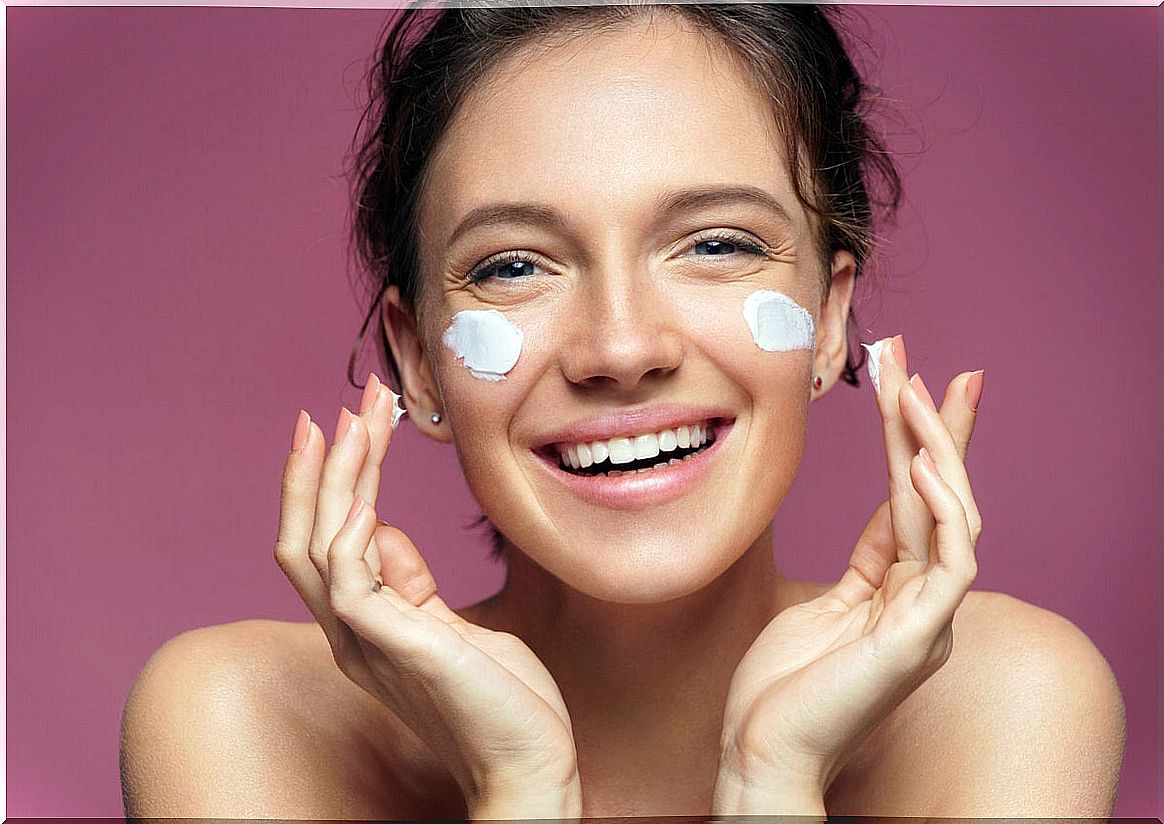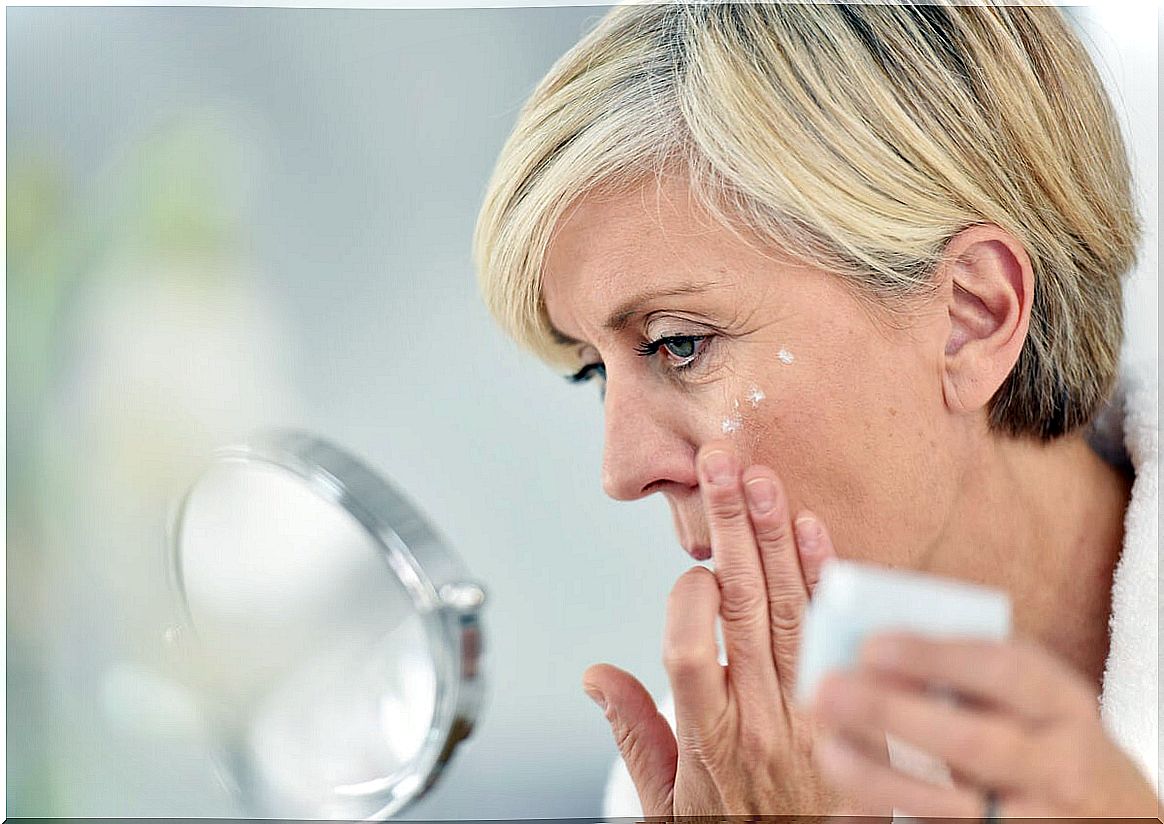What Is Psychocosmetics?

Many of us use cosmetics on a daily basis to take care of ourselves and look better. The goal is to pamper the skin, hair, body, etc. This helps us feel a little better. As a result of everything and, also as a marketing strategy for some, psychocosmetics was born.
Psychocosmetics would be the concept to refer to traditional cosmetics, but with the benefits of the latest advances in this sector. Let’s say that, at present, these advances are aimed at achieving harmonious well-being. For this reason, the defenders of psychocosmetics argue that there is a clear relationship between skin and brain.
But what else do we know about psychocosmetics? Is this nomenclature correct? What do these products provide us: pleasure or emotion? We talk about all this through the opinion of some experts.
What is psychocosmetics?
According to a study by Martínez-González (2015), cosmetics (or aesthetic dermatology) is that part of dermatology that deals with skin care, as part of the beauty and image of a person. It can also be defined as a ‘technique for the manufacture and use of cosmetic substances or products’.
Cosmetic products can be very varied. Thus, they can range from perfumes to makeup, skin and body creams, colorants, shampoos, softeners, etc.

Their goal: to beautify
The objective of cosmetics is to apply preparations to preserve or beautify different areas of the body: the skin in general, the face, hair … As a curious fact, it is known that in primitive peoples cosmetics had a magical character.
Traditionally, cosmetics have been oriented to aesthetics, beauty, makeup and skin health. However, at present there is already talk of a new concept of it: psychocosmetics or neurocosmetics.
Through its products, it seeks to promote the connection between the skin and the brain. How? Through the hormones that we secrete from the emotional reaction to these products.
In short, with psychocosmetics we refer to those items of beauty that serve to protect and care for our skin. But it is also useful in providing us with a feeling of well-being through the connection between the brain and the skin.
Products that stimulate the senses
At present, there are laboratories that are already working on psychocosmetics. They create products with psychoactive ingredients that increase or inhibit the release of skin neuromediators.
According to these laboratories, these principles or substances could stimulate emotions through senses such as sight, touch or smell. Esperança Figuerola, head of R&D in one of these laboratories, highlights the benefits of psychocosmetics when it comes to promoting positive emotions. And it does it like this:
Experts Opinion on Psychocosmetics
Some mental health experts claim that the connection between the skin and the brain exists, and that these organs would go hand in hand. Thus, emotions could have an impact on the skin.
However, psychologists warn: true positive emotions go beyond the sensations of pleasure provided by cosmetics. In addition, they also affirm that the term “neuro” or “psycho” should not be applied to cosmetics, since in that case all activities that are related to emotions or hormones could also be called that.
In this way, this nomenclature would not be for some more than a marketing strategy, but it would not reflect reality, much less. That is why we must use the concept with caution.
The influence of cosmetics and cosmetic surgery on mental health
Going a little beyond psychocosmetics, we also find cosmetic surgery, which already involves a surgical intervention to change certain features of the face or body with the desire to “improve” or “look better.”
In relation to it, a 2011 study by Von Soest et al., Developed by the University of Cambridge and published in the Cambridge University Press affirms that there is limited information on the psychological effects of cosmetic surgery.
Thus, in line with the results of the study, it could be said that when there are mental health symptoms prior to surgery, they do not have to disappear afterwards due to it.
On the other hand and, focusing now on cosmetics in general (or traditional), according to a study by Echarte (2009), at present neither psychiatrists nor parents of young people who decide to go to cosmetics know for sure the impact it will have on them and them.
However, not all claim the same. In fact, the study by Martínez-González (2015), already mentioned, suggests that aesthetic or cosmetic dermatology has great potential when it comes to improving people’s well-being.
What does psychocosmetics provide us?
Now, what does psychocosmetics really provide? Pleasure or emotion?
Body and sensory pleasure when smelling a good cream and hydrating our skin or positive emotion for feeling good? Let’s clarify this a bit more.

A correct term?
Cosmetics can surely bring us both pleasure and excitement. However, is this enough to use the concept of “psychocosmetics”? Probably not.
The reality is that cosmetics can contribute to improving our well-being, but it cannot be equated to psychotherapy, for example, where the use of the psycho prefix would be justified for obvious reasons. In addition, this concept is currently being used to talk about lifelong cosmetics and thus simply highlight the benefits explained.
In other words, for many, especially mental health professionals, psychocosmetics is the usual cosmetics, but with nuances. Thus, the concept is used to highlight the connection between skin and brain and the benefits of investing in our self-care.
As we have seen, psychocosmetics focuses on emotions through self-care and beauty. It is clear that the stimulation of our senses (smell, taste, sight …) can have a (positive) impact on our state of mind, although we must use this concept with caution.
Just because a cream makes us feel better does not mean that it is a therapeutic tool. However, it is also true that self-care is part of the strategies that benefit our emotional health. As we can see, opinions on psychocosmetics are diverse, and the debate is served!









